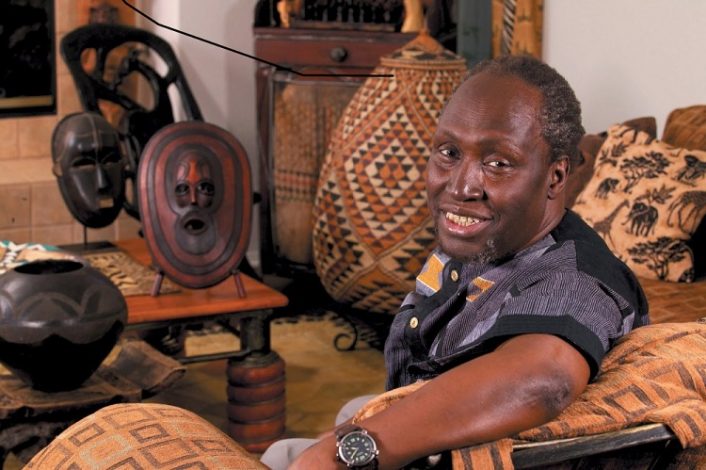Kenyan writer, scholar, and activist Ngũgĩ wa Thiong’o, renowned for his unwavering commitment to African languages and resistance to oppression, has died at age 87 in Atlanta.
His passing was announced by his family on May 28, 2025. As his daughter Wanjiku wa Ngũgĩ wrote, “It is with a heavy heart that we announce the passing of our dad, Ngũgĩ wa Thiong’o, this Wednesday morning. He lived a full life, fought a good fight.”
Ngũgĩ’s influence stretched across continents, generations, and languages.
He was a perennial contender for the Nobel Prize in Literature and one of the few major writers to work primarily in an indigenous African language.
Early Life and the Roots of Resistance
Born in 1938 in Kamiriithu, Limuru, during British colonial rule, Ngũgĩ was one of 28 children in a polygamous Gikuyu family.
He came of age during the Mau Mau uprising, witnessing firsthand the brutality of colonial repression: “During the conflict, Ngũgĩ’s father… was forced off his land, and two of his brothers were killed”.
These experiences profoundly shaped his worldview and writing.
Literary Career and Political Persecution
Ngũgĩ’s early works, including Weep Not, Child (1964) and A Grain of Wheat (1967), explored Kenya’s colonial legacy and the quest for independence.
He became a lecturer at Nairobi University, where he famously challenged the dominance of English literature, asking, “If there is need for a ‘study of the historic continuity of a single culture’, why can’t this be African? Why can’t African literature be at the centre so that we can view other cultures in relationship to it?”
In 1977, his radical Gikuyu play Ngaahika Ndeenda (I Will Marry When I Want) led to his detention without trial by the Moi regime.
Reflecting on this turning point, Ngũgĩ said, “In prison I began to think in a more systematic way about language… Why was I not detained before, when I wrote in English?”
He resolved that “the only language I could use was my own,”
Exile, Activism, and Enduring Impact
After his release in 1978, Ngũgĩ went into exile, first in the UK and then the US, where he taught at Yale and the University of California, Irvine.
Despite the distance, he remained deeply connected to Kenya through his language, activism, and critique of injustice. His works, including Petals of Blood (1977), Devil on the Cross (1980), and Wizard of the Crow (2006), continued to challenge postcolonial elites and celebrate the power of Indigenous voices.
His 1986 essay collection Decolonising the Mind became a seminal text on the role of language in shaping national identity. Ngũgĩ’s decision to write exclusively in Gikuyu made him a powerful symbol of postcolonial African identity.
Personal Trials and Later Years
Ngũgĩ’s life was marked by both public acclaim and personal hardship. In 2004, during a return visit to Kenya, he and his wife Njeeri were attacked in what they described as a politically motivated assault: “I don’t think we were meant to come out alive,” he later reflected.
He continued to write, translate, and inspire until his final years, earning numerous awards and honorary doctorates.
In 2021, he became the first author nominated for the International Booker Prize for a work written in an indigenous African language and for translating his novel, The Perfect Nine.
Tributes and Legacy
Tributes have poured in from around the world.
His son, Mukoma Wa Ngũgĩ, wrote: “I am me because of him in so many ways, as his child, scholar and writer. I love him – I am not sure what tomorrow will bring without him here. I think that is all I have to say for now.”
Ngũgĩ himself once said, “Resistance is the best way of keeping alive. It can take even the smallest form of saying no to injustice. If you really think you’re right, you stick to your beliefs, and they help you to survive.”
It tears my heart to say that my father, Ngugi Wa Thiong’o passed away earlier today. I am me because of him in so many ways, as his child, scholar and writer. I love him – I am not sure what tomorrow will bring without him here. I think that is all I have to say for now. pic.twitter.com/MlkIlxx5xJ
— Mukoma Wa Ngugi (@MukomaWaNgugi) May 28, 2025
Final Words
Ngũgĩ wa Thiong’o is survived by his children and grandchildren, many of whom have followed in his footsteps as writers, academics, and activists.
As his daughter Wanjiku urged, “As was his last wish, let’s celebrate his life and his work. Rîa ratha na rîa thŭa. Tŭrî aira!”—a Gikuyu phrase loosely translating to “With joy and sorrow. We are proud.”
His life and legacy will not be marked by silence, but by song, stories, and the enduring power of words.
As Amnesty International wrote, “Having already earned his place in Kenyan history, he transitions from mortality to immortality.”




